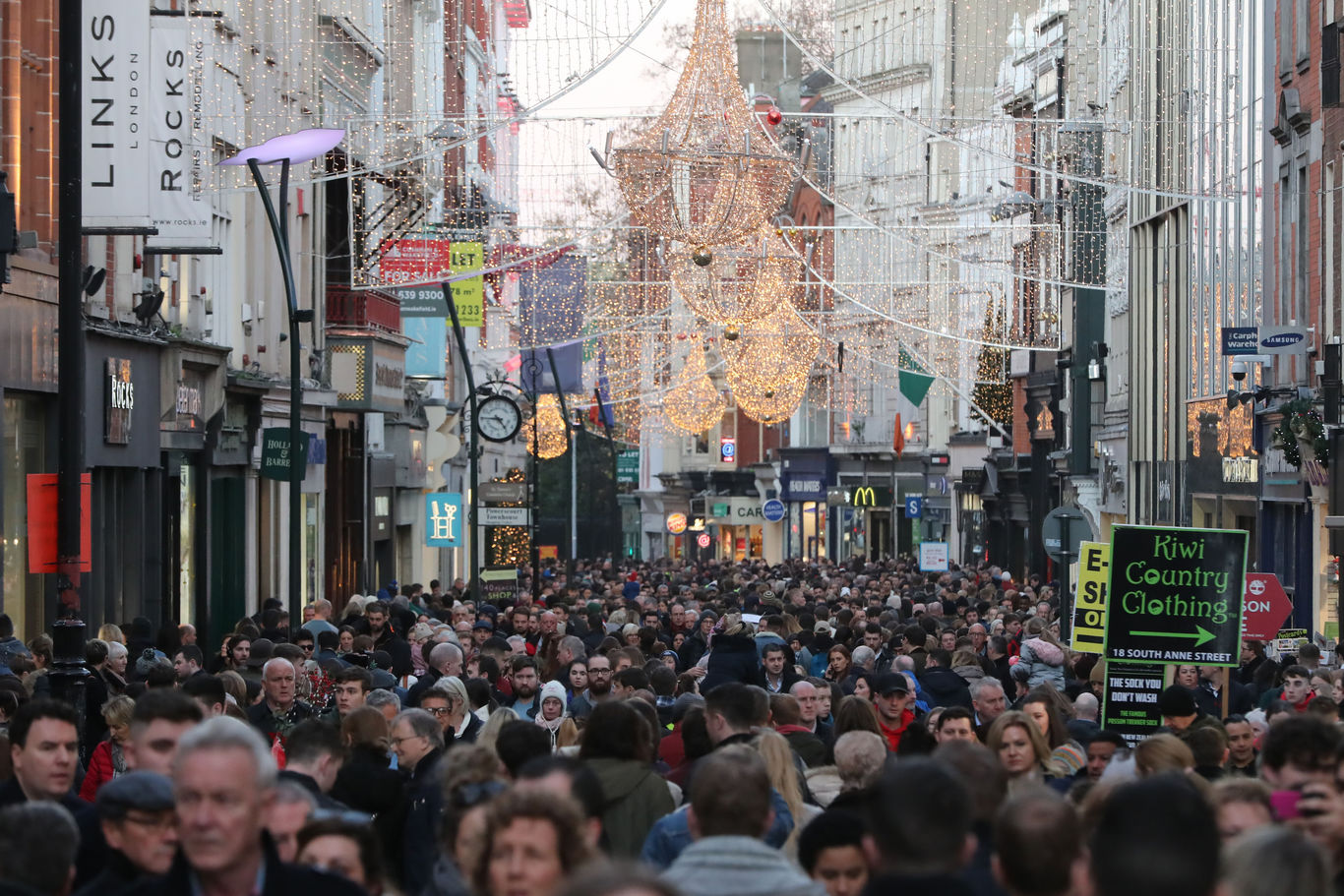Ireland's economic squeeze: could staff shortages stifle growth?
The economy is still growing, but it is slowing down as capacity constraints limit expansion.
IRISH COMPANIES ARE slowing their expansion plans because of a tight labour market and the under-provision of vital infrastructure, according to Ibec’s latest quarterly economic outlook.
“The Irish economy has now recorded several years of strong, sustainable, growth,” which has been driven by growing business investment, rising employment and wages – a little inflation – and healthier household finances.
But future growth is likely to be a bit more moderate, with Ibec, Ireland’s largest business group, forecasting GDP growth of 3.1% in 2020 – which is contingent on the revised Brexit Withdrawal Agreement being ratified before the end of January 2020.
“While the outlook is still positive, the pace of growth is likely to be more moderate in the coming years. Feedback from our members indicates businesses are increasingly finding that the tight labour market and under-provision of vital infrastructure is materially impacting on companies’ expansion plans,” Gerard Brady, Ibec Chief Economist, said.
Brady pointed out that Ireland is at a point where numbers in employment will have increased by almost 500,000 since 2012. The failure to match this rapid growth with the required increase in public infrastructure has given rise to growing congestion and problems in areas such as transport, housing, and childcare, he added. In turn, this is making it more difficult to attract and retain the workers needed to meet potential demand.
Global issues such as Brexit and trade tensions aren’t making the situation any easier.
“The biggest challenge we face may be one within our own control. Ensuring that we match record private investment with a renewed and expanded public infrastructure will be the defining challenge of the coming years,” Brady said.
In its report, issued this morning, Ibec said that this will be “the defining challenge of the coming years”.
“One of the most significant changes in Budget 2020, from a business point of view, was the allocation of a further €900 million in spending on public infrastructure in 2020. This shows that the Government has been listening to the concerns of business when it comes to core quality of life issues which are impacting on our ability to attract and retain talent.”
Labour market
Economic growth brings employment growth. Since 2012 – the beginning of economic recovery – there has been a 25% increase in total employment. Our workforce is at a record 2.3 million.
But as the economy slows, so will the employment rate – and that will put pressure on wages.
There has also been a “dramatic reduction” of 30% in the number of people who are long-term unemployed – a good indicator of strong employment demand.
Since 2015, there has also been a return to more people entering the country than leaving it – but migration is still nowhere near as high as in the mid-2000′s.
Issues around quality of life – like housing, transport and the cost of child care – are also causing more Irish nationals to emigrate than return.
“Looking into next year, there is a risk of overheating as a result of a shortage of labour and diminishing spare capacity in the economy,” the report said.
Cautious consumers
Despite these early warning signals, economic growth is still a strong trend in Ireland. It will be strong, just not as strong as in previous years.
“Following growth of around 6% in 2019 the pace of economic expansion will fall back toward 3% in 2020,” the report said.
This is down to a combination of two factors. It will become increasingly difficult to grow the workforce to keep up with current employment increases. Secondly, external factors, such global trade tensions will start to take a greater toll on Ireland’s main export economies.
“Despite falling consumer confidence, retail sales grew by 3% in value terms in the first three quarters of 2019 as strong wage and employment growth translated into consumer demand,” according to the report.
This dichotomy between consumer hesitation and growing retail demand is partially down to Brexit uncertainty. “No matter what the outcome, uncertainty is here to stay,” the report said.
Christmas on the horizon is also due to bring a bump in sales. It’s expected Irish consumers will shell out about €5 billion this month.
Despite an impending Brexit, the total value of Irish exports in the first eight months of the year rose by more than 10%, largely down to dairy and drinks – rising by €573 million – and computer processors, to over €1.8 billion.
But according to the report, that’s small fry compared to the “unprecedented increase in the value and volume of pharmaceutical exports”, which rose by more than €5.5 billion in the first eight months of the year.
Get our Daily Briefing with the morning’s most important headlines for innovative Irish businesses.






